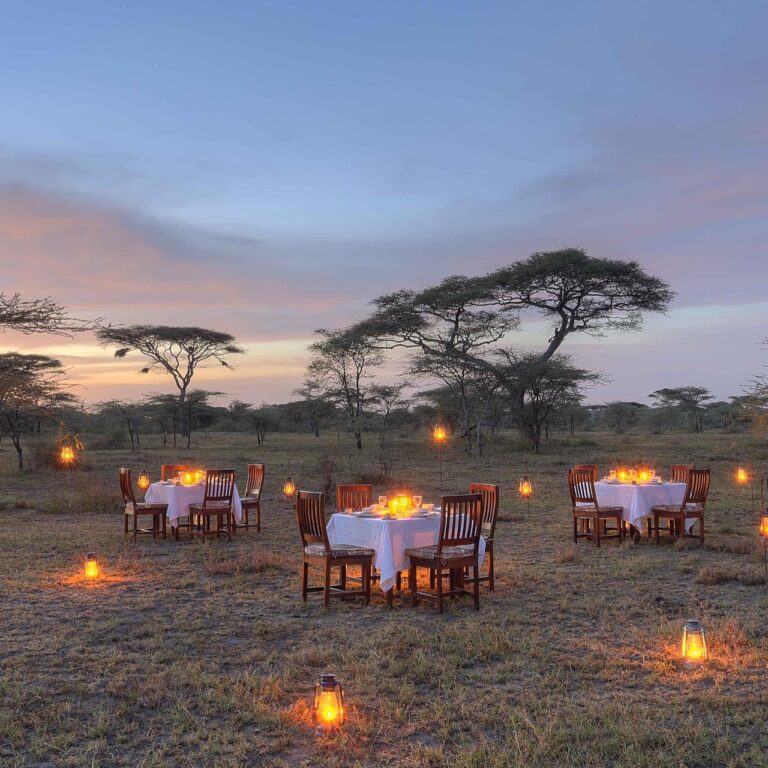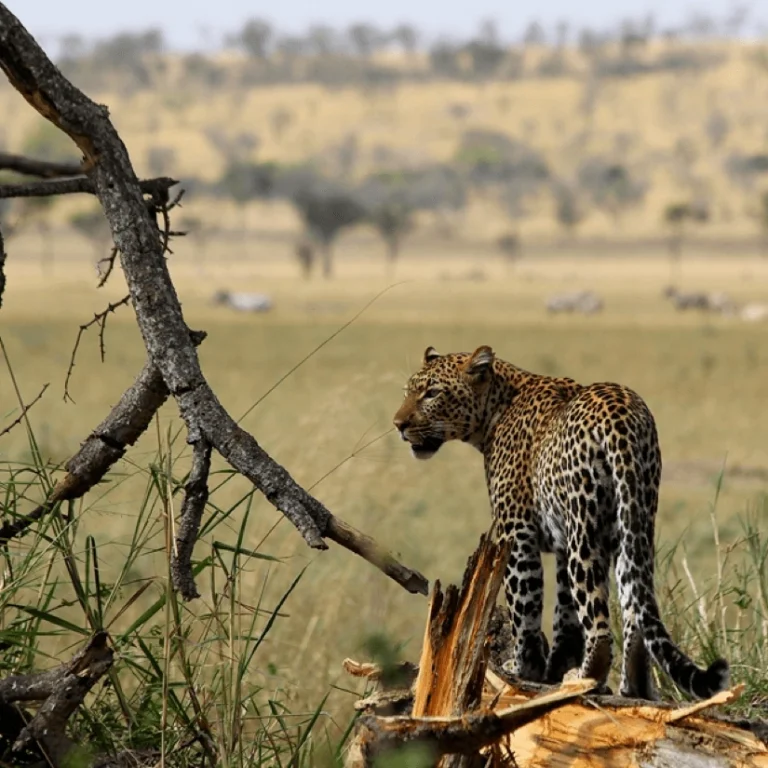Your Health & Safety Essentials For Your Tanzania Safari.
Tanzania, the land of breathtaking wildlife, stunning landscapes, and rich cultural heritage, beckons countless adventurous souls every year. But amidst the excitement of planning your safari, ensuring your health and safety should be paramount. Things You Need to Know About Vaccinations for Tanzania Safaris from navigating tropical diseases to protecting yourself from the sun’s relentless gaze, thorough preparation is key to a worry-free and unforgettable Tanzanian adventure. Planning your Tanzania Safaris requires checking all health boxes. The essentials include: Vaccinations: If you’re coming from a country with yellow fever risks, you need to get a yellow fever vaccination certificate. It’s also a good idea to get shots for Hepatitis A and B, Typhoid, Rabies, and Meningitis.
Vaccinations: Health and Safety in Tanzania
Mandatory: Yellow fever vaccination is a legal requirement for entry into Tanzania if you’re arriving from a country with a risk of transmission. Get the certificate at least 10 days before travel.
Highly Recommended: Consider vaccinations for Hepatitis A & B, Typhoid, Rabies, and Meningitis based on your health history and itinerary. Remember to update routine shots like DTP (Diphtheria, Tetanus, and Pertussis) and MMR (Measles, Mumps, and Rubella).
Malaria Prevention: safety measures on Tanzania safari tours
Tanzania lies in a malaria-prone zone. Consult your doctor about anti-malarial medication before, during, and after your trip.
Wear long sleeves and pants at dusk and dawn, when mosquitoes are most active.
Apply insect repellent containing DEET to exposed skin. Sleep under mosquito nets provided by your safari operator.
Water and Food Safety
Stick to bottled or filtered water. Avoid tap water and ice cubes.
Be cautious with street food. Opt for cooked meals served at reputable restaurants or lodges.
Wash fruits and vegetables thoroughly with bottled water.
Sun Protection: what to pack for your Safari
Tanzania’s sunshine is intense. Apply sunscreen with SPF 30 or higher at least 30 minutes before exposure and reapply frequently, especially after swimming or sweating.
Wear a wide-brimmed hat and sunglasses for additional protection.
Essential Medical Kit: 10 essential items to pack for your safari
Pack a basic medical kit containing essentials for common ailments like headaches, upset stomach, diarrhea, allergies, and minor cuts. Include bandages, antiseptic wipes, and pain relievers.
Don’t forget your prescription medications, if any, in sufficient quantities for the entire trip.
Additional Tips: Essential Health & Safety For Your Trips
- Purchase comprehensive travel insurance that covers medical emergencies, evacuation, and trip cancellation.
- Inform your doctor about your travel plans and seek professional advice regarding any specific health concerns.
- Listen to your body and stay hydrated. Avoid overexertion in the hot climate.
- Be vigilant about personal hygiene, wash your hands frequently, and use hand sanitizer.
- Respect wildlife and follow your guide’s instructions during game drives.
- By diligently adhering to these health and safety essentials, you can maximize your enjoyment and focus on creating lasting memories during your Tanzania safari. Remember, a little preparation goes a long way in ensuring a safe and healthy adventure in this magical East African nation.
Tanzania Safari FAQs: Your Guide to Health & Safety
Embarking on a Tanzanian safari is a dream for many, filled with wildlife encounters, breathtaking landscapes, and rich cultural experiences. But beyond the excitement, prioritizing your health and safety is crucial for a worry-free adventure. Here are some frequently asked questions to equip you with essential knowledge:
Do I need any vaccinations for Tanzania?
Yes, a yellow fever vaccination certificate is mandatory if you’re arriving from a country with a risk of transmission. Consult your doctor about recommended vaccinations like Hepatitis A & B, Typhoid, Rabies, and Meningitis based on your itinerary and health history.
What injections do I need for Tanzania?
Courses or boosters usually advised: Hepatitis A; Poliomyelitis; Tetanus. Other vaccines to consider: Diphtheria; Hepatitis B; Meningococcal Meningitis; Rabies; Typhoid. Selectively advised vaccines – only for those individuals at highest risk: Cholera; Yellow Fever.
What vaccinations do you need for Tanzania safari?
The CDC and WHO recommend the following vaccinations for Tanzania: hepatitis A, hepatitis B, typhoid, yellow fever, rabies, meningitis, polio, measles, mumps and rubella (MMR), Tdap (tetanus, diphtheria and pertussis), chickenpox, shingles, pneumonia and influenza.
How can I avoid malaria in Tanzania?
While malaria is present in Tanzania, you can significantly reduce your risk by:
- Consulting your doctor about anti-malarial medication before, during, and after your trip.
- Wearing long sleeves and pants at dusk and dawn.
- Applying insect repellent containing DEET to exposed skin.
- Sleeping under mosquito nets provided by your safari operator.
Is it safe to drink tap water in Tanzania?
No, it’s best to stick to bottled or filtered water and avoid tap water and ice cubes. Be cautious with street food and opt for cooked meals served at reputable restaurants or lodges. Wash fruits and vegetables thoroughly with bottled water.
How strong is the sun in Tanzania?
Tanzania’s sunshine is intense. Apply sunscreen with SPF 30 or higher at least 30 minutes before exposure and reapply frequently, especially after swimming or sweating. Wear a wide-brimmed hat and sunglasses for added protection.
What should I pack in my medical kit for Tanzania?
Pack a basic medical kit containing essentials for common ailments like headaches, upset stomach, diarrhea, allergies, and minor cuts. Include bandages, antiseptic wipes, pain relievers, and any prescription medications you require.
What else can I do to stay safe on my safari?
Purchase comprehensive travel insurance that covers medical emergencies, evacuation, and trip cancellation. Inform your doctor about your travel plans and seek professional advice for specific health concerns. Listen to your body, stay hydrated, and avoid overexertion in the hot climate. Be vigilant about personal hygiene, wash your hands frequently, and use hand sanitizer. Respect wildlife and follow your guide’s instructions during game drives.
What is Health Essentials for Tanzania Safaris?
Here are some health essentials to consider: Vaccinations: Tanzania requires a yellow fever vaccination certificate for travelers coming from countries with a risk of yellow fever transmission. Other recommended vaccinations include Hepatitis A and B, Typhoid, and Rabies.
Remember, with proper preparation and awareness, you can minimize health risks and maximize your enjoyment on your Tanzanian safari. Have an unforgettable adventure!
I hope this detailed FAQ equips you with the knowledge and confidence to approach your Tanzanian safari with a focus on health and safety. Remember, a little preparation goes a long way in ensuring a worry-free and unforgettable experience!








